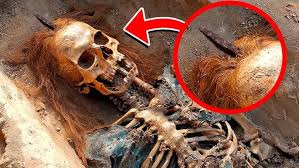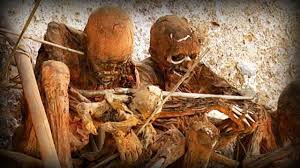History ERASED: Ancient Truths That Challenge Everything We Thought We Knew!

What if the history you learned only scratched the surface? Recent archaeological discoveries have unveiled a past that is far more complex and brutal than we ever imagined. From Viking burial rituals involving decapitated slaves to the blood-soaked arenas of ancient Rome, the raw and revealing nature of our history forces us to confront uncomfortable truths about humanity’s journey.

Consider the Viking practices that involved the sacrifice of slaves, a stark reminder of the harsh realities of life during that era. These rituals were not merely acts of violence; they were steeped in beliefs about honor, the afterlife, and the favor of the gods. Such customs challenge our contemporary moral frameworks and compel us to understand the values that shaped these ancient societies. Were they cruel, or were they merely adhering to customs that made sense within their cultural contexts?

Similarly, the Roman arenas, where gladiators fought to the death for public entertainment, reflect a society deeply entrenched in spectacle and violence. This brutal pastime reveals how entertainment was intertwined with the very fabric of Roman life, raising questions about the human capacity for empathy and the normalization of violence in pursuit of pleasure.
Adding to the intrigue, a 500-year-old mummy carrying hepatitis B has left scientists in shock, igniting debates about the health and social practices of ancient civilizations. The presence of such diseases in mummified remains reveals a history of human struggle that transcends time, reminding us that the challenges we face today are not new.
Moreover, the mysterious structures like France’s giant dolmen and Egypt’s mud-coated mummies whisper of forgotten customs and unknown rituals. These archaeological marvels invite us to ponder the significance of ancient burial practices and the belief systems that shaped them. What secrets lie within these structures? What do they tell us about the lives and deaths of those who came before us?

As we delve deeper into these discoveries, we are confronted with the realization that the past is anything but simple. The narratives we construct around ancient cultures often reflect modern biases, and the truths buried beneath layers of time may challenge our perceptions. Were these civilizations barbaric, or were they simply navigating a world governed by values and norms we struggle to comprehend?
In conclusion, the more we unearth about our ancient ancestors, the louder the past speaks. It compels us to confront the complexities of human existence and the myriad ways cultures have evolved. As we grapple with these revelations, we must remain open to the idea that history is not a linear progression but a tapestry woven from diverse experiences, beliefs, and values. The truths of our past are waiting to be uncovered, and they hold lessons that can shape our future.